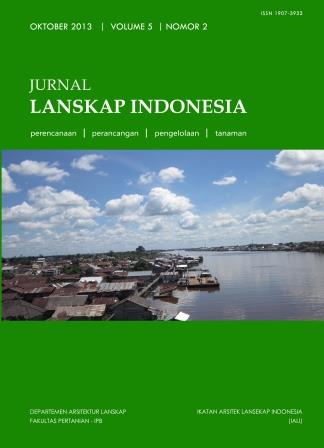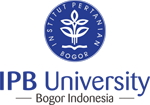KARATERISTIK HABITAT MUSIM DINGIN SIKEP MADU ASIA (PERNIS PTYLORHYNCHUS) DI TALAGA BODAS, JAWA BARAT BERBASIS DATA SATELLITE TRACKING
Abstract
ABSTRACT
Oriental Honey Buzzards (OHBs, Pernis ptilorhynchus) are migratory raptors which have wintering grounds in Indonesia. OHBs’ wintering habitats can be divided into core and edge habitats with unique landscape characteristics, which influence wintering site selection.TalagaBodasandsurroundingareahas beenidentifiedas wintering habitat of OHB based satellite tracking data. Theobjective of this study were to: 1) modeling the distribution of wintering habitat of OHB in Talaga Bodas; 2) analyzemicro habitats of vegetationaspect inTalagaBodas; 3) implications of wintering habitatmanagement inWest Java. Main methodology was combining satellite-tracking data of OHB with the GIS/remote sensing datausing logistic regression model. 18 Environmental variable used in this study include nearest distance to the elevation (0-300m, 300-500m, 500-700m, 700-1000m, >1000m),slope (0-3%, 3-8%, 8-15%, 15-25%, 25-40%, >40%) and landcover (water body, paddy field,abandon land,settlement,shrub,plantation,forest). Only 7 variables were detected as important variable for characteririzing the distribution of wintering habitat. Wintering habitat distribution model werepredominantly influenced by 1) slope 25%-40%, 2) elevation 0-300 m, 3) elevation 300-500 m, 4) elevation >1000 m, 5) forest, 6) paddy field and 7) water body. The results of the vegetation analysis’s known that the core habitat biodiversity tend to have less variable than the edge habitats.The results ofthis studywillbe usedformanagement ofwinteringhabitat for OHB.
Key words:logistic regression, oriental honey-buzzards, satellite tracking, talaga bodas, wintering habitat
Downloads
This journal permits and encourages authors to post items submitted to the journal on personal websites or institutional repositories both prior to and after publication, while providing bibliographic details that credit, if applicable, its publication in this journal. However, after the article is submitted and published in this journal, it is fully copyrighted by the Jurnal Lanskap Indonesia or JLI. If excerpts from other copyrighted works are included, the author must obtain written permission from the copyright owner and give credit to the source in the article. Then, the writer or reader is allowed to copy, share, and redistribute articles/material in any form. But it must still include the appropriate source and credit because the article in this journal is licensed by Creative Commons Attribution 4.0 International License (CC BY 4.0).
I. Proposed Policy for Journals That Offer Open Access
Authors who publish with this journal agree to the following terms:
- Authors retain copyright and grant the journal right of first publication with the work simultaneously licensed under a Creative Commons Attribution License that allows others to share the work with an acknowledgement of the work's authorship and initial publication in this journal.
- Authors are able to enter into separate, additional contractual arrangements for the non-exclusive distribution of the journal's published version of the work (e.g., post it to an institutional repository or publish it in a book), with an acknowledgement of its initial publication in this journal.
- Authors are permitted and encouraged to post their work online (e.g., in institutional repositories or on their website) prior to and during the submission process, as it can lead to productive exchanges, as well as earlier and greater citation of published work (See The Effect of Open Access).
II. Proposed Policy for Journals That Offer Delayed Open Access
Authors who publish with this journal agree to the following terms:
- Authors retain copyright and grant the journal right of first publication, with the work after publication simultaneously licensed under a Creative Commons Attribution License that allows others to share the work with an acknowledgement of the work's authorship and initial publication in this journal.
- Authors are able to enter into separate, additional contractual arrangements for the non-exclusive distribution of the journal's published version of the work (e.g., post it to an institutional repository or publish it in a book), with an acknowledgement of its initial publication in this journal.
- Authors are permitted and encouraged to post their work online (e.g., in institutional repositories or on their website) prior to and during the submission process, as it can lead to productive exchanges, as well as earlier and greater citation of published work (See The Effect of Open Access).



























